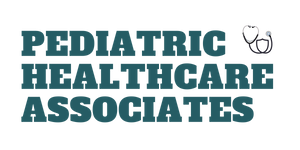
Mental health plays a crucial role in shaping our overall well-being, influencing our thoughts, emotions, and social interactions. As actress Glenn Close once said,
“What mental health needs is more sunlight, more candor, and unashamed conversations.” Unfortunately, mental health remains one of the least discussed topics, often surrounded by stigma and misconceptions.
For children, in particular, mental health challenges can be difficult to identify, as they may struggle to express their emotions openly. Many parents find it challenging to help their child open up about feelings of anxiety, depression, or emotional distress. However, addressing mental health concerns early can significantly improve a child's emotional resilience, self-confidence, and ability to cope with life’s challenges.
Why Mental Health Awareness for Children Matters:
- Early intervention can prevent minor emotional struggles from developing into more serious conditions.
- Open conversations help children feel safe and supported when discussing their feelings.
- Mental and emotional well-being directly impact academic performance, relationships, and overall development.
If your child shows signs of withdrawal, persistent sadness, mood swings, or difficulty concentrating, seeking professional guidance is essential. If you’re looking for the
best pediatricians in Altoona, PA, consider those with expertise in pediatric mental health. A skilled pediatrician can assess your child’s emotional well-being, offer valuable guidance, and recommend effective coping strategies.
By encouraging open discussions, removing the stigma around mental health, and ensuring timely support, we can help children grow into emotionally strong and confident individuals.
Following can be the symptoms:
- Depression
- Anxiety attacks
- ADHD
- Bulimia
- Substance abuse
How to judge the seriousness of the problems? What are the treatment options?
Often, it is hard to identify what a child may be going through. There may be several factors contributing to the child’s traumatic experience. Before taking steps or calling up medical professionals for help, it is extremely important that we identify the problem and then proceed to counter it.
Mild Symptoms:
- If the child shows symptoms but it does not affect his normal activities.
- School, play, relationships, and sleep are not changed.
Treatment: parenting groups or books. Encouraging children to some refreshing activity or even making them read a good fun book may break the ice, pushing the child out of the monotony.
Moderate Symptoms:
- Symptoms keep the child from doing some normal activities. New behaviors mainly occur at home. They affect how the child and parent interact. They may also keep him or her from going to child care or school.
- Your child may not sleep well because of these symptoms.
Treatment: Most often, brief counseling from a mental health provider or your child's doctor. The conversations eventually help the child to open up on the issues bugging him/her.
- Severe Symptoms: Symptoms keep the child from doing the most normal activities. They affect the way the child acts with parents.
- Symptoms also impact relations with siblings and friends. Adults at child care or school may also be impacted by the child's actions.
Treatment: These patients often need to be seen urgently by a mental health provider. To curb any unavoidable damage, it is best for the child to be taken under care from a medical professional.
In conclusion, Mental health is not a joke. Children tend to withdraw from the outside world and suffer. It is the responsibility of the parents to identify the initial symptoms. Proper vigilance eliminates subsequent stages of depression, anxiety which could have attacked the child. Proper care, counselling and constant guidance from the near and dear ones can turn things around for the child making him/her feel better.
Disclaimer: This health information is for educational purposes only. You, the reader, assume full responsibility for how you choose to use it.
Citation/References:
https://phcaaltoona.com/phca-symptom-checker/#!/topic/357/mental-health-problems
 Mental health plays a crucial role in shaping our overall well-being, influencing our thoughts, emotions, and social interactions. As actress Glenn Close once said, “What mental health needs is more sunlight, more candor, and unashamed conversations.” Unfortunately, mental health remains one of the least discussed topics, often surrounded by stigma and misconceptions.
For children, in particular, mental health challenges can be difficult to identify, as they may struggle to express their emotions openly. Many parents find it challenging to help their child open up about feelings of anxiety, depression, or emotional distress. However, addressing mental health concerns early can significantly improve a child's emotional resilience, self-confidence, and ability to cope with life’s challenges.
Why Mental Health Awareness for Children Matters:
Mental health plays a crucial role in shaping our overall well-being, influencing our thoughts, emotions, and social interactions. As actress Glenn Close once said, “What mental health needs is more sunlight, more candor, and unashamed conversations.” Unfortunately, mental health remains one of the least discussed topics, often surrounded by stigma and misconceptions.
For children, in particular, mental health challenges can be difficult to identify, as they may struggle to express their emotions openly. Many parents find it challenging to help their child open up about feelings of anxiety, depression, or emotional distress. However, addressing mental health concerns early can significantly improve a child's emotional resilience, self-confidence, and ability to cope with life’s challenges.
Why Mental Health Awareness for Children Matters:






